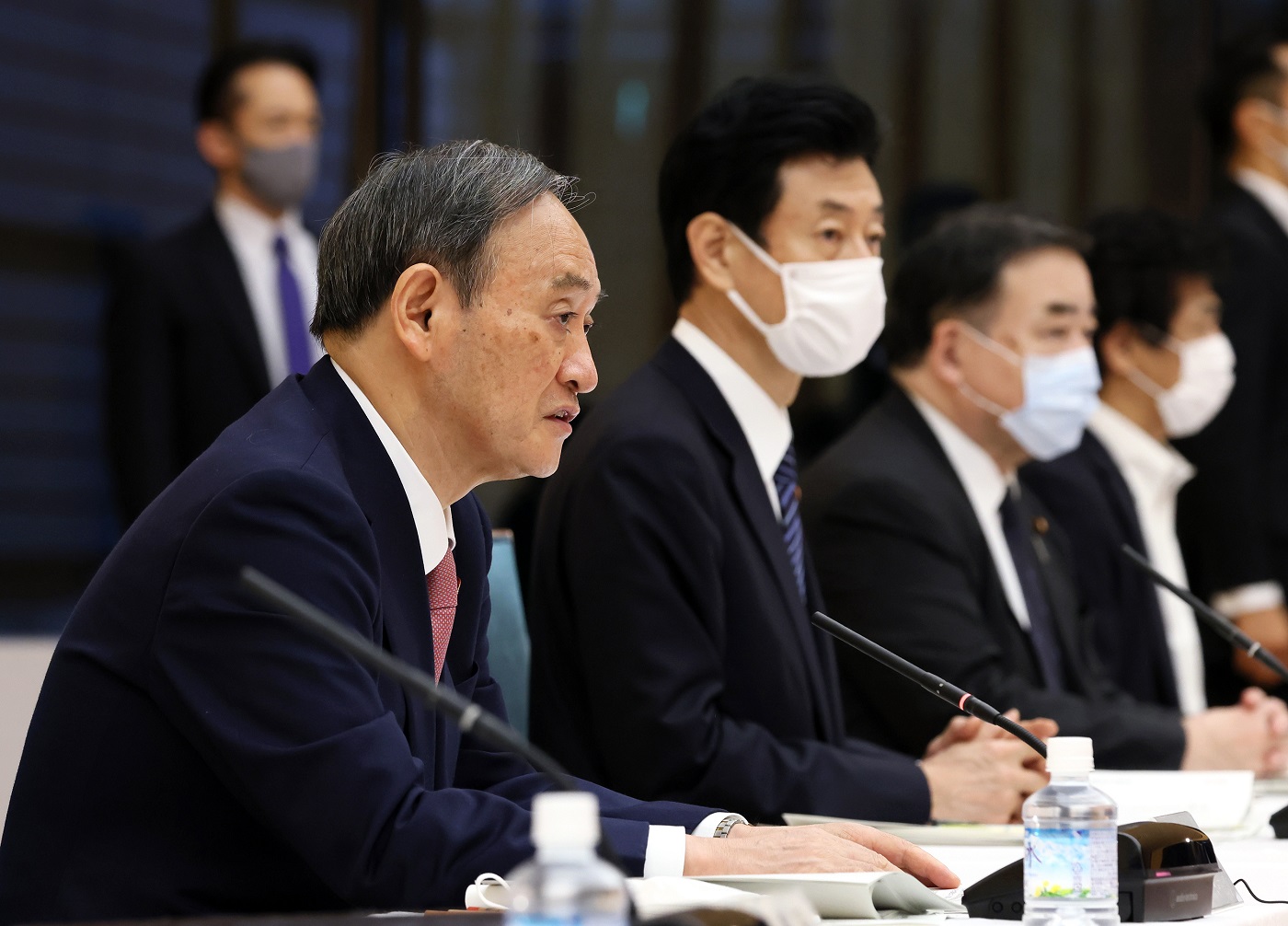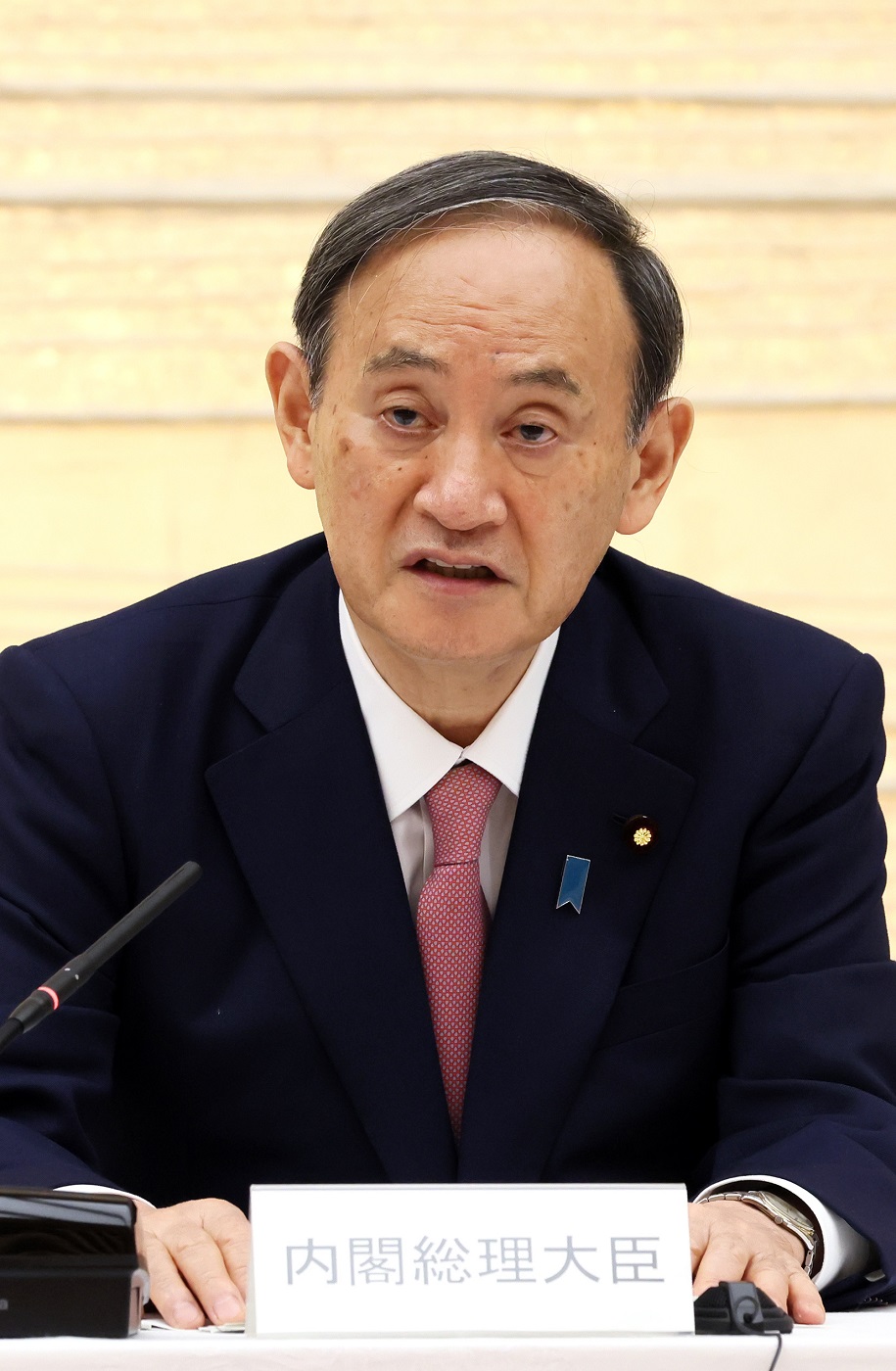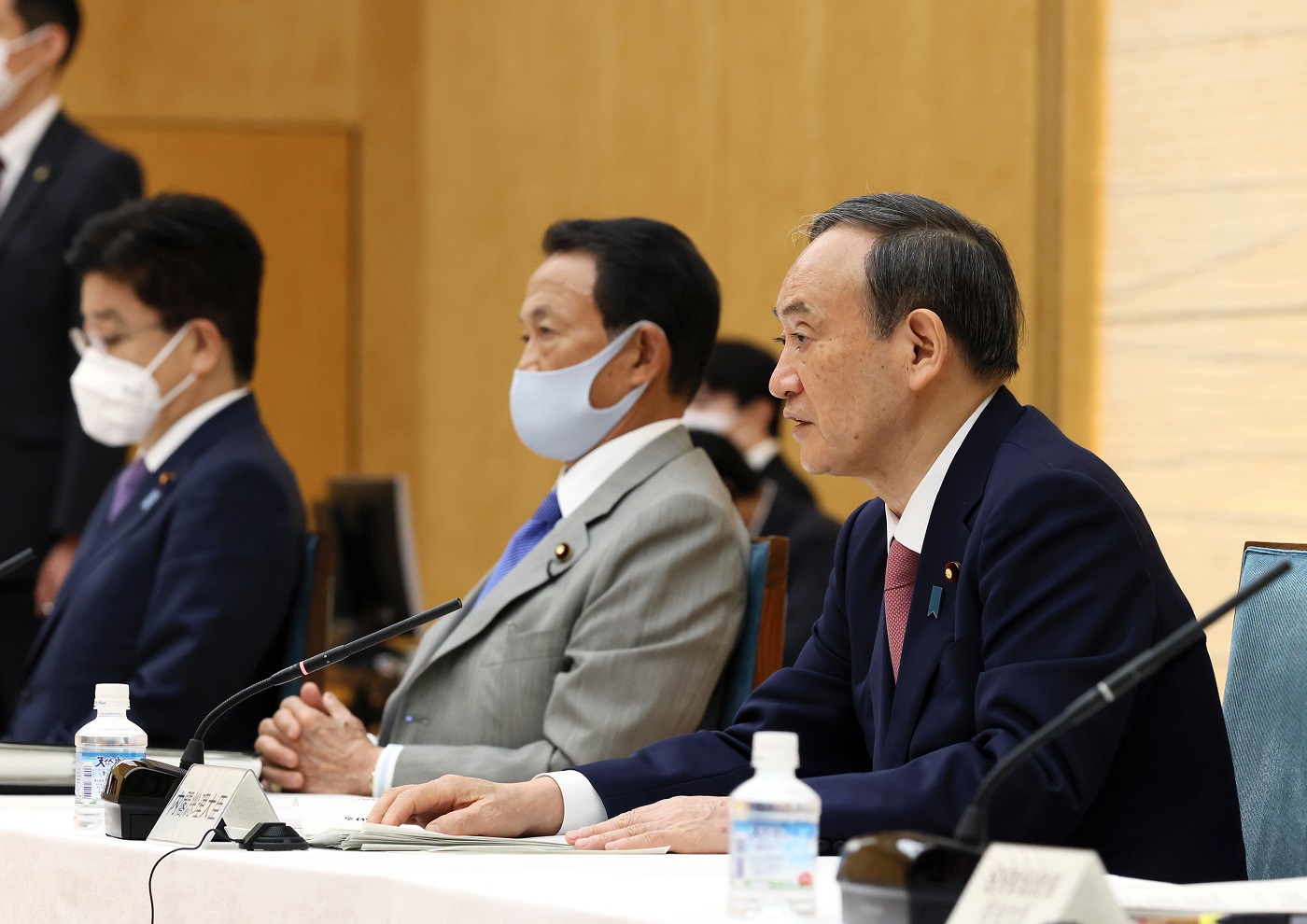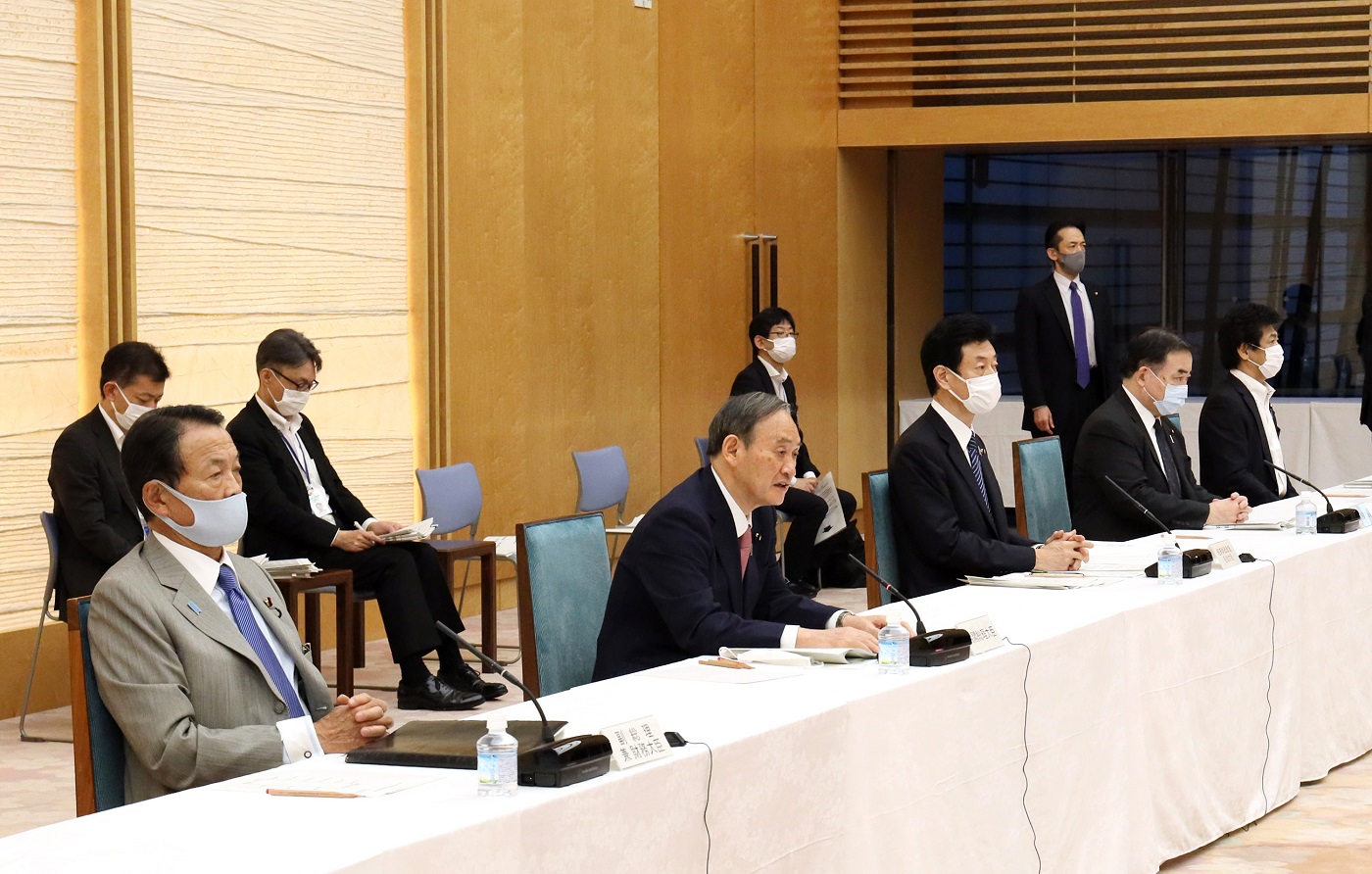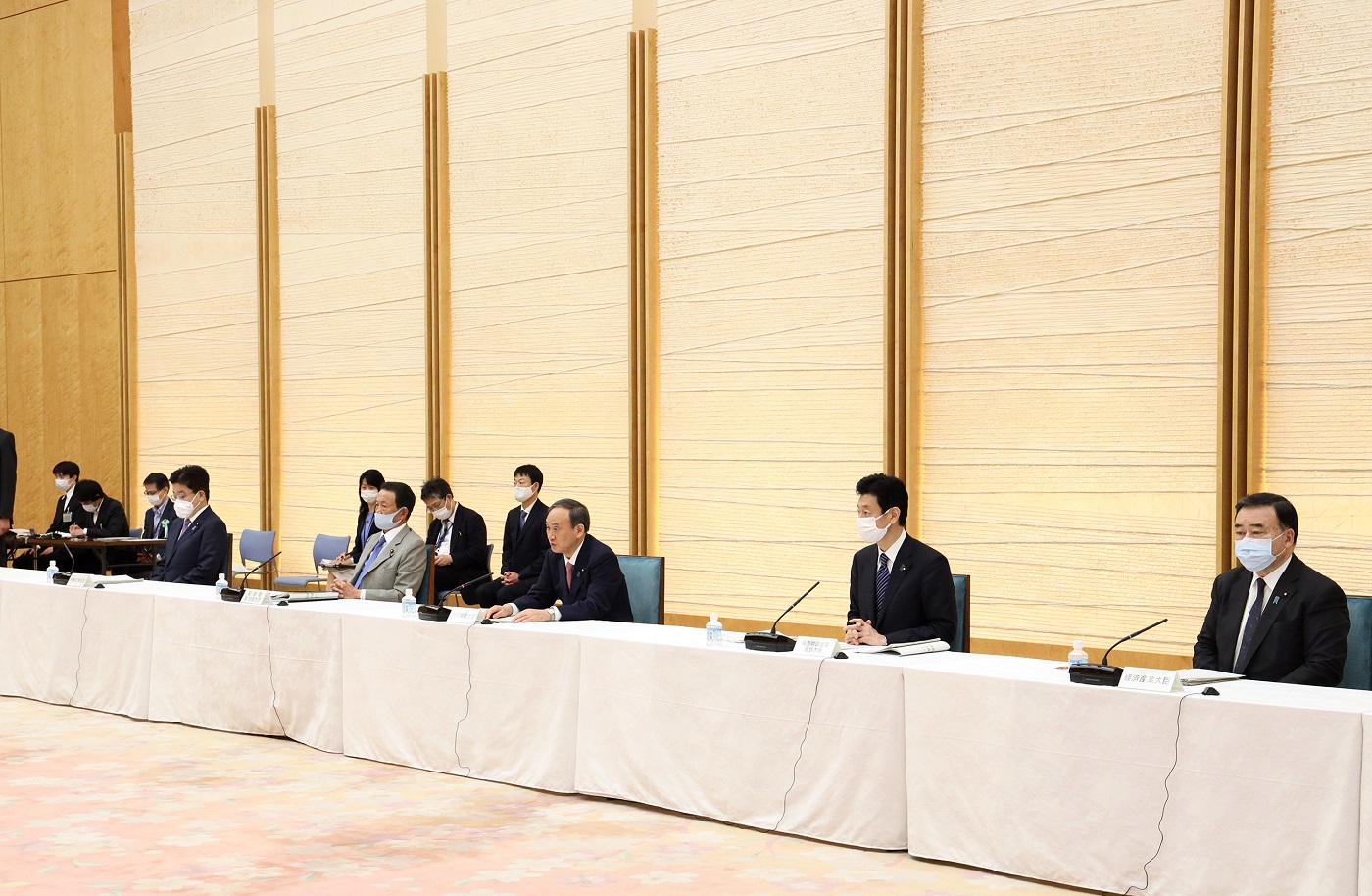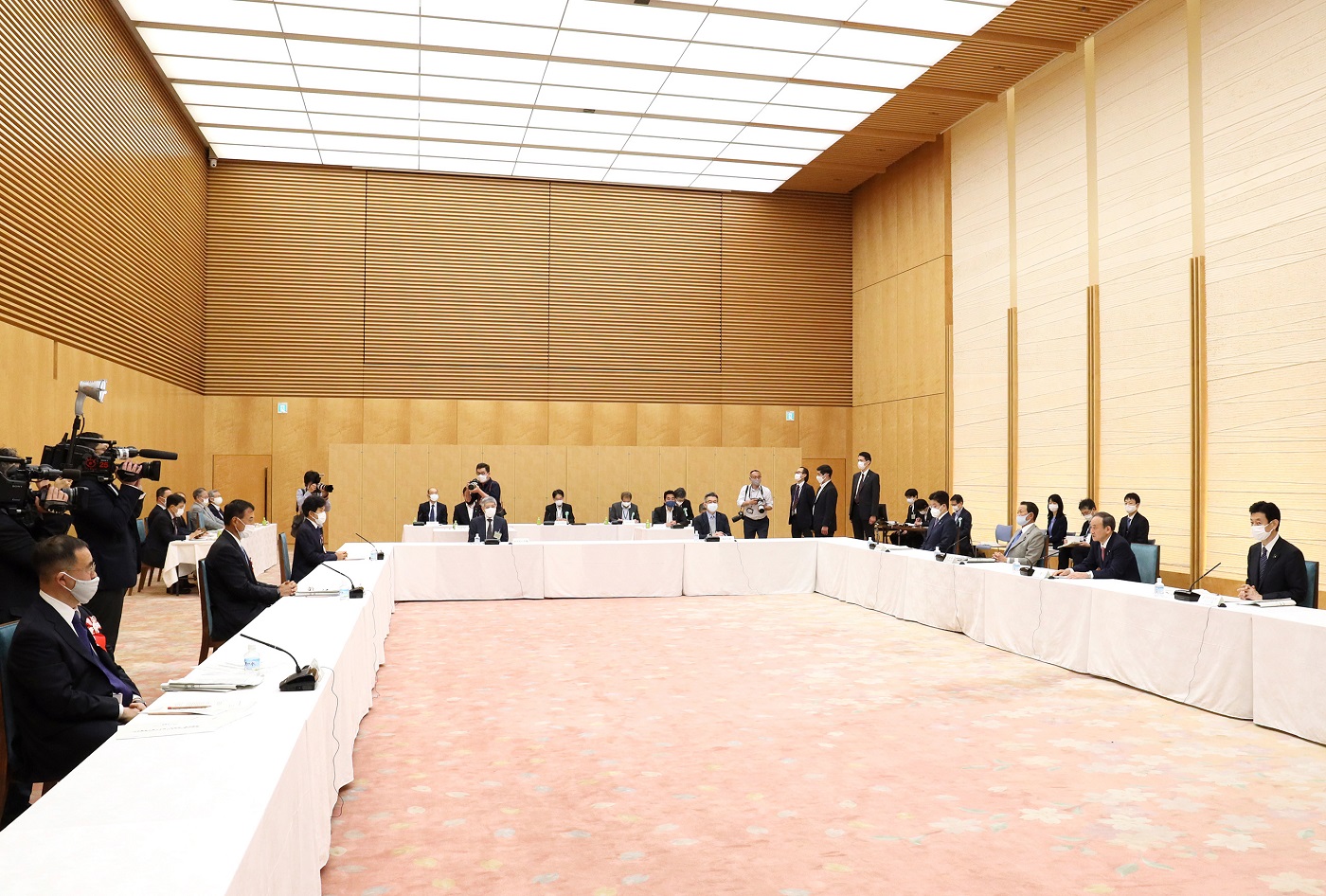Home > News > The Prime Minister in Action > May 2021 > Meeting of the Council on Economic and Fiscal Policy
The Prime Minister in Action
Meeting of the Council on Economic and Fiscal Policy
May 14, 2021
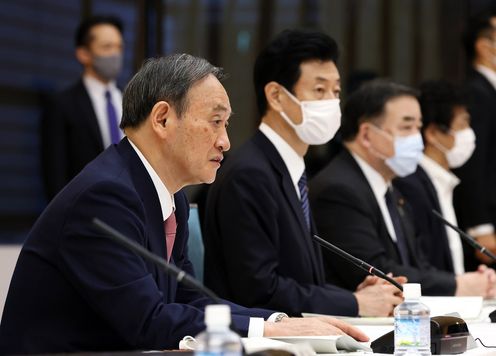
Photograph of the Prime Minister making a statement (1)
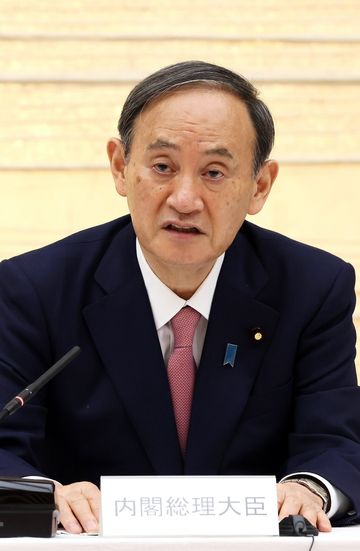
Photograph of the Prime Minister making a statement (2)
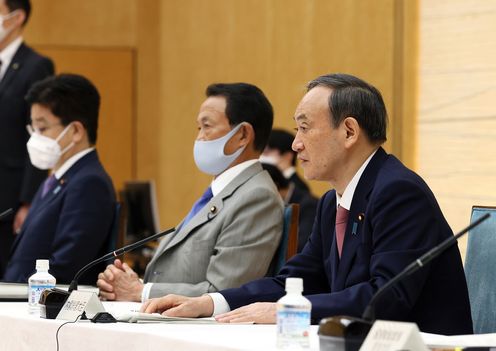
Photograph of the Prime Minister making a statement (3)
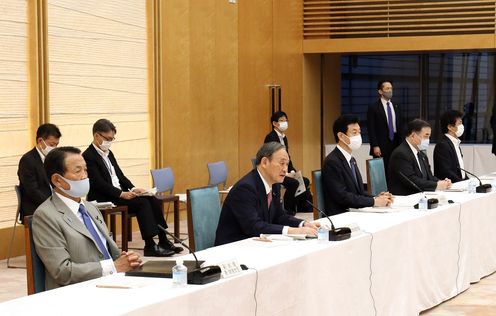
Photograph of the Prime Minister making a statement (4)
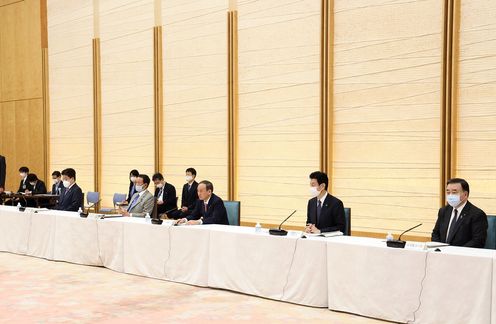
Photograph of the Prime Minister making a statement (5)
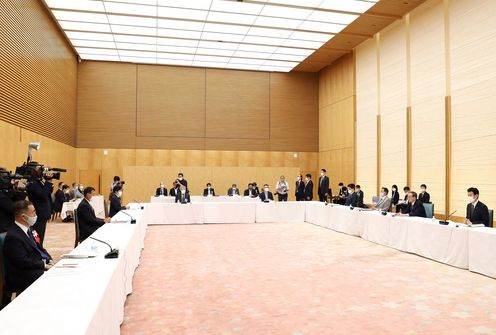
Photograph of the Prime Minister making a statement (6)
[Provisional Translation]
On May 14, 2021, the Prime Minister held the sixth meeting of the Council on Economic and Fiscal Policy in 2021 at the Prime Minister’s Office.
At the meeting, the participants engaged in intensive discussions on monetary policy, commodity prices, and other issues as well as discussions on the Integrated Economic and Fiscal Reforms (outline, enhancement of the Japanese economy, and education and culture as well as science and technology).
Following the discussion, the Prime Minister said,
“Today, we held discussions on the course of action toward economic and fiscal reforms in the time to come, and other matters.
Raising wages is essential in order to create a virtuous economic cycle of expanding consumption and economic growth in the future. Despite the pandemic of the novel coronavirus disease (COVID-19), wage hike rates this year remain at nearly two percent. However, Japan’s labor’s share has been on a downward trend for many years, with its average wages lingering at a relatively low level compared to those of other major countries. Against this backdrop, it was pointed out that the level of minimum wages is only slightly higher than that of livelihood assistance. As COVID-19 is expanding the income gap, raising minimum wages is indispensable in correcting discrepancies. Drawing on initiatives by other countries to raise minimum wages amid the COVID-19 pandemic, we will aim to achieve minimum wages of 1,000 yen on the national average at an earlier time and engage in wage hikes this year, based on the achievements we made in raising them in Japan before the pandemic.
The idea that the economy is the foundation of public finance will remain as the basic principle of our economic and fiscal policy management. In accordance with this idea, we will advance growth-oriented policies and revitalize the economy without lowering the banner of realizing fiscal soundness, such as achieving primary balance surplus, and continue our existing efforts to reform government expenditures. As the baby boomer generation will turn 75 or older in the next fiscal year, we will make continued efforts of social security reform.
We will push ahead with educational reforms, leveraging the provision of “one computer per student" and the creation of a university fund worth 10 trillion yen. We will also improve the teaching ability of teachers and expand online education according to the level of understanding of each and every student. In addition, we will strengthen management capabilities of universities to promote external fundraising and review of resource allocation.
Based on today’s discussions on each challenge, we will advance our efforts to work on materialization, toward the formulation of the Basic Policy (on Economic and Fiscal Management and Reform) next month. I would like to ask for your cooperation.”

